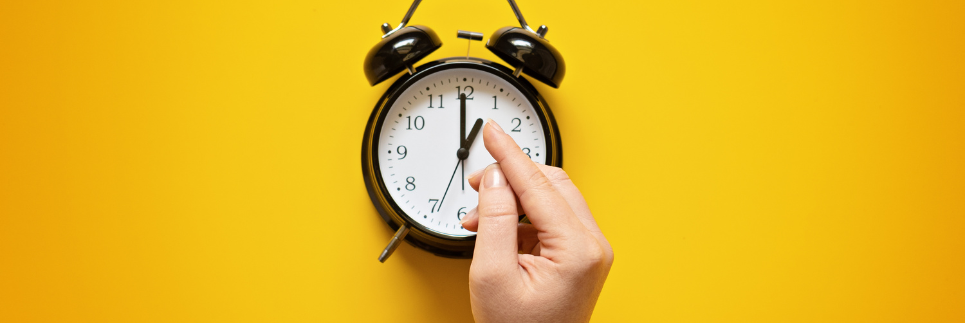While the lyrics in Cher’s song, “If I Could Turn Back Time,” are about a romantic relationship, whenever I hear it, it makes me think of other opportunities to do things over. And while we can’t time travel, we can learn from our mistakes and experiences and from others’ mistakes and experiences. So, perhaps you can learn from me and avoid my biggest regrets.
1. I'd take back those words that have hurt you
It was just before a basketball game that I was coaching, and our two middle school teams were warming up while I was chatting with the opposing coach. He looked at one of my players, who was over 6 feet tall, and commented about how hard he would be to guard. Did I respond in a way that would highlight the player’s strengths and maybe put a little fear into the other team? No — unfortunately, what came out of my mouth was:
Oh no, you don’t have to worry about him. He’s clumsy and can barely catch the ball; he’s only on the team because he’s in grade 8.
I have no idea if that player or any of his teammates heard it, but I never should have said it.
How often did I say something that tore a student down instead of building them up? Whether it’s in front of their faces or behind their backs, what we say about and to students matters greatly. We’ve likely all said things we wish to take back, but we can’t. What we can do, however, is speak words that build our students up in ways that allow them to grow and thrive.
2. Too strong to tell you I was sorry
In the first years of my teaching career, I felt that my strength was in planning! I would be at the school at 6 a.m. on a Saturday morning and work until noon. I’d work my way through the teaching manuals and textbooks, carefully planning out what each class would do and what we’d accomplish. I read the scope and sequence documents and calculated how many days we had to reach each objective. The school policy manual stated that students should have 10 minutes of homework per grade level each night, so I sat and calculated how much time it would take to do each math question as I assigned their homework. I prided myself on how many units of the mandated curriculum I would “complete” each year. But, was that truly a strength?
We don’t teach curriculum, objectives, or textbooks. We teach human beings. It took me too long to learn the difference. The curriculum, objectives, and other things can be useful in reaching our goal, but they are not the goal. When we prioritize students, we can intentionally build lessons to meet the objectives and give our students the best possible education.
3. Too proud to tell you I was wrong
On one occasion, in my first year of teaching, I spent an entire weekend crawling across my classroom floor, drawing and coloring a gigantic map of the Roman Empire with markers and pencil crayons. What’s worse, I made two because I was teaching the same unit in two separate classrooms. I didn’t throw that map away until twenty years later, because I just couldn’t acknowledge how much time I had wasted on it, and it still had to be good for something — right? Pride can hold a vicious grip on us if we let it!
I’ve spent far too much time convincing myself that I was right about something or trying to hide or ignore a mistake I’d made. Thankfully, later in my career, I learned that it was powerful to allow students to see my faults and failings and then to move on and learn from them. We need to realize that when we make a mistake, which we will continue to do because we’re human, it’s best to own up to it quickly. I’ve learned that students are very accepting of a teacher who can humble themselves and admit when they’re wrong.
4. If I could reach the stars
I’d just finished marking a solving linear equations unit test. One-quarter of the students had scored less than 50% on the test. What did I do the next day in math class? I started teaching the next lesson on how to graph linear equations on the coordinate plane, which one-quarter of the students were not ready for. What was I thinking? I might have been reaching for the stars, but I was leaving my students behind!
Thankfully, I soon learned there was another way to teach that didn’t leave students behind. I moved to Mastery-based learning (sometimes called Competency-based education) in my classroom. I researched, found, and made the tools that would help me think differently about what a learning classroom would look like. That journey led me to StudyForge. I wish I had transitioned sooner to a Mastery-based classroom and the tools that StudyForge brought to the table. After I made the switch, I only had one or two students fail the Solving Linear Equations Unit test in five years, and I could go back and spend more time on the topic with those students. Changing our thinking on how we can help students reach their goals and finding the tools needed to achieve this will lead to much greater success for all students.
5. If I could turn back time
I loved crafting lesson plans, detailing units, creating assignments, writing quizzes, and all the rest. I spent a lot of my time preparing content for my classes. And while some of what I created was certainly good, not all of it was. Moreover, my students often heard only my voice, perspective, and opinion in what I created. I needed to expose them to more. I needed something more to reach the diverse students in my classroom.
It took me a long time to realize how important it was to find a quality curriculum in order to allow me to focus on the things that really mattered that would authentically help me and my students. I wish I could go back in time and encourage the schools I worked in to invest more resources in finding and purchasing quality tools to help me and other teachers I worked with become better, more equipped educators.
There are a great many things I love about being a teacher. But one of the greatest is what I think of as the Great Reset. At the end of every school year, when all my students are done with their courses, I get a chance to start over. (Okay, I hear those of you who are teaching online with asynchronous classes with continuous enrollment. I’ve taught students straight through the summer, too!) At those times, when I had the opportunity to “reset,” I’d look back on my school year, re-think everything I’d done, and consider what worked well and what needed to change. That way, I could somewhat prepare for the time ahead and hopefully avoid the need to wish I had done things differently!
If you could pause for a moment, somehow hit the “reset” button on your teaching career and reflect back, which is kind of like turning back time, what are the things that you would go back and change?
About the Author






